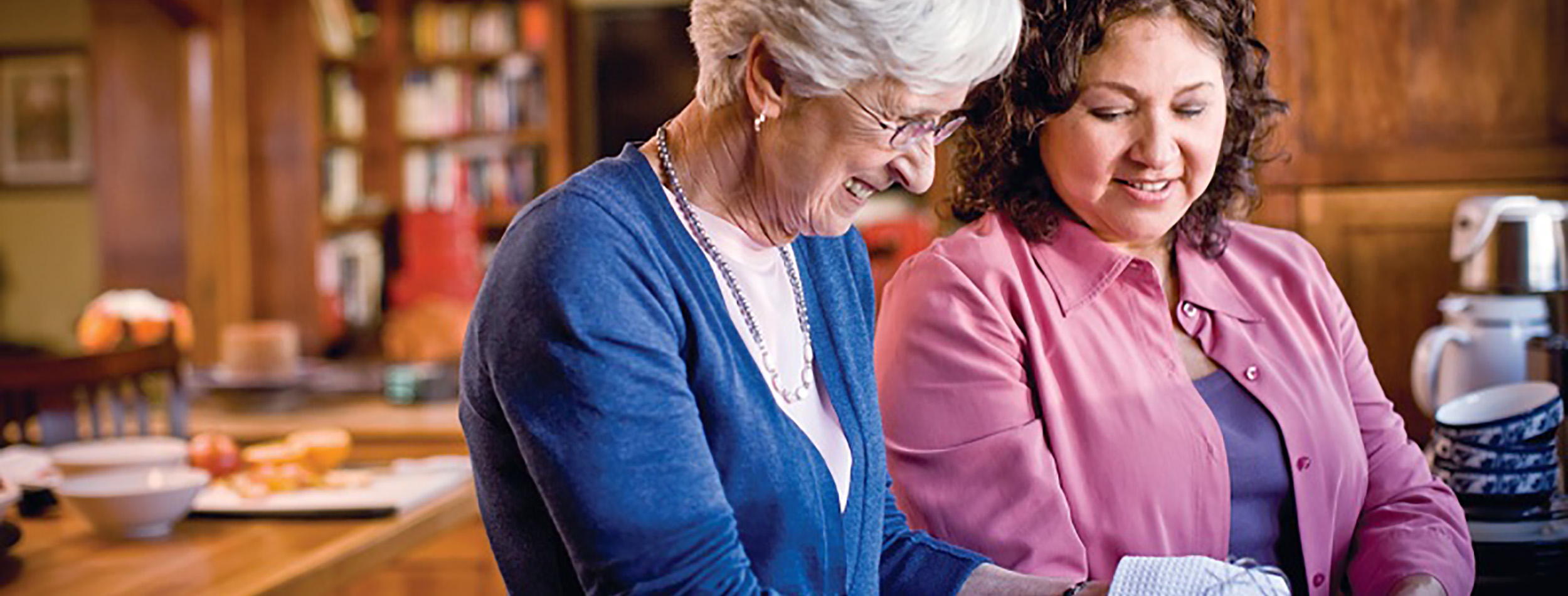

Caring for the Caregivers: CA Senate Bill 1257
I care for the elderly because I consider this a noble profession... But if I get sick, I don’t know how I will pay my bills or care for my own family.— Lee Plaza, L.A. domestic worker
For many California domestic workers, being exposed to health and safety hazards on the job is nothing new. Many spend their days physically assisting older adults and people with disabilities. Many regularly come into contact with hazardous bodily waste and use industrial grade cleaning chemicals with the understanding that if they want to protect their skin, eyes, and lungs, they need to buy their own protective gear. During the wildfires of recent years, some domestic workers were asked to risk their lives staying behind in wildfire evacuation zones to defend property and pets, or to clean up toxic waste in houses immediately afterward, while the air was still thick with ash and smoke.
Soccoro Diaz developed severe respiratory problems while cleaning a home in a still-evacuated fire zone. “I went to a clinic, and they said…my lungs were comparable to a person who smoked,” said Diaz, a worker leader with the Graton Day Labor Center in Sonoma County. “My skin was extremely dry, and my eyes burned…My employers did not give me any protective equipment or explain the dangers of the job.”
Underpaid and overworked, domestic workers also often work in isolation in private homes, putting them at high risk of physical, emotional, or sexual abuse. Despite the high-risk nature of the job, California’s 300,000+ domestic workers — caregivers, homekeepers, and nannies — are still excluded from the state’s occupational health and safety law, CAL/OSHA, which provides basic, common-sense protections for most other workers across the state. Without the protection of this law, an employer request for risky or backbreaking work has clear connotations: Do this, or you won’t get paid. Do this, or you’ll be fired.
Domestic workers are caring for some of the most at-risk people of our communities, and in doing so, they’re helping to prevent our hospitals from overcrowding.
But the current pandemic presents a truly unprecedented threat to domestic workers’ health, and ultimately their lives. It puts their families and communities at risk. And since many live paycheck to paycheck, without reliable health insurance, they must choose daily between putting themselves in a potentially life-threatening situation, or not being able to pay rent.
That decision is further complicated because domestic workers currently play a critical role on the COVID-19 front lines: They’re caring for some of the most at-risk people of our communities, and in doing so, they’re helping to prevent our hospitals from overcrowding.
“We homecare workers, we can’t just stay home. We’re out there keeping society running,” said Lee Plaza, a domestic worker in Los Angeles. “We are essential to keeping the sick and elderly out of our overburdened hospitals. But we need to be taken care of as well.”
That’s why Lee, Socorro, and domestic workers across California passionately support California Senate Bill 1257 — known as the Health and Safety for All Workers Act — as a necessary piece of legislation to protect themselves and their families as they continue providing essential services to our communities’ most vulnerable during this pandemic. Authored by Senator Maria Elena Durazo, and co-sponsored by Equal Rights Advocates, the California Domestic Workers Coalition, Worksafe, and the California Employment Lawyers Association, SB 1257 would remove the exclusion of domestic workers from CAL/OSHA, and give them the same basic safety protections as other workers across the state, such as health and safety training, protective equipment, and legal protection against retaliation should they need to advocate for their own health and safety at work.
Currently serving more than 2 million households, California’s domestic workforce will increase by 52% over the next two years. These workers are 91% women, and 57% are Latinx, Black, or Asian. Many are the primary breadwinners for their families. By eliminating the “household domestic service” exclusion in Cal/OSHA — which has no legislative history to explain why it was added, other than blatant discrimination — SB 1257 would end a shameful source of racism and sexism in our state’s laws, finally extending to domestic workers the basic rights and protections already afforded to nearly everyone else.
It is the least we can do. Even at this moment, when their work is more valuable than usual because of its larger implications, domestic workers are experiencing widespread, devastating loss of income, employment, and job security. Nationally, more than half of those surveyed by the National Domestic Workers Alliance had no job for the week of March 30, and that figure rose to 68% by the following week. Many who are still on the job risk their health daily because they don’t have adequate protective equipment, even as they help families follow guidelines to prevent the spread of coronavirus, and help prevent hospital overcrowding by caring for the elderly and those with disabilities and chronic illnesses.
Without the protection of this law, an employer request for risky or backbreaking work has clear connotations: Do this, or you won’t get paid. Do this, or you’ll be fired.
Join Equal Rights Advocates in ending the outrageous exclusion of domestic service workers from California’s health and safety protections. This is a time-sensitive priority that needs your support now to protect domestic workers during this time of heightened risk to their health and safety.
Lee Plaza, the domestic worker from Los Angeles, is spending her very limited free time and energy advocating for the bill. “I care for the elderly because I consider this a noble profession, and not everyone can be a caregiver,” she said. “But if I get sick, I don’t know how I will pay my bills or care for my own family.”
There is no excuse. We must eliminate this blatant racism and sexism from our laws, or be complicit in continuing to endanger the lives of these critical workers, their families, and communities.
Stay Connected & Take Action
- Get the Latest News & Information Sign up for Email Updates
- Sign Up for Action Alerts Join the Action Team
- Follow Us


